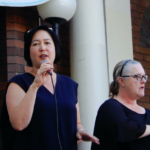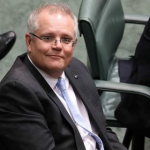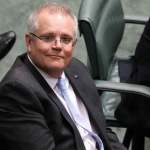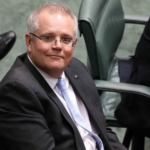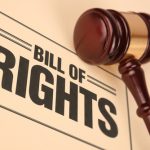Proposed Amendments to NSW Anti-Discrimination Act Will Fuel Transphobic Hate
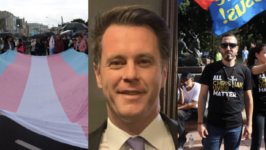
Over the Morrison-era, there were attempts federally and in this state to pass laws to provide religious people with antidiscrimination protections, yet these bills also contained measures that tended toward rights law to the point that those of faith would be empowered to discriminate.
One Nation MLC Mark Latham was behind this attempt to insert such laws into the Anti-Discrimination Act 1977 (NSW) (the Act), which, as NSW Greens MP Jenny Leong pointed out at the time, was a little suspect considering his party’s long-history of blatantly Islamophobic policy.
Latham was running this in tandem with another bill framed at erasing transgender identities from schools, which was part of a broader targeting of trans people by the Christian Right to push back against LGBTIQ rights gains made with marriage equality, which was the trigger for the federal laws.
The Coalition, unsurprisingly, backed Latham’s laws in review, but even the dissenters agreed that religion as a protected attribute is missing from this state’s antiquated antidiscrimination law, as are protections for sex workers and intersex people, while transgender provisions too need an overhaul.
But the Minns government’s religious vilification bill isn’t the solution. Rather it’s a band-aid law to appease its waning religious vote, that, in the current political climate, will further send a destructive message to trans communities, while Labor is aware that the right approach is a new Act.
Protecting institutions
We oppose “the bill in its current form”, said NSW Council for Civil Liberties president Josh Pallas in a statement on 28 June: the day NSW attorney general Michael Daley introduced the Anti-Discrimination Amendment (Religious Vilification) Bill 2023 into state parliament.
“The bill cannot be fixed with amendments,” the lawyer continued, going on to explain that “the only prudent way to facilitate such far reaching reform is through a referral of the whole Anti-Discrimination Act to the NSW Law Reform Commission”.
An election promise, Daley actually referred the Act to the NSWLRC for review on 19 June, a week before introducing the religious bill, which tends to lend further credence to the suggestion that this is more about placating those of faith who consider the Morrison and Latham agenda preferrable.
The NSWCCL also raises concerns about the broadness of the provisions of the proposed religious vilification law, as it appears it won’t only serve to protect religious individuals from severe ridicule, but it may also serve to protect religious beliefs or ideas, or indeed, religious institutions themselves.
For example, Pallas suggested the bill could lead to situations where ridiculing institutions like “the Catholic Church, Hillsong, the Church of Scientology or the Anglican Church may be taken to constitute… vilification of persons who belong to those organisations, and thus made unlawful.”
The guts of the bill
Daley’s Religious Vilification Bill is a slightly tweaked version of a bill by the same name that then Labor Party MP Paul Lynch introduced in June 2021, which was at the height of the debate around Latham’s religious preferencing laws, as well as his parental rights/anti-trans kids proposal.
Incidentally, Lynch, then Labor shadow attorney general, was one of only three dissenters from the overall recommendation made by the March 2021 committee review report into Latham’s religious freedoms bill. That was along with Independent MP Alex Greenwich and Jenny Leong.
The current bill would insert new section 49ZE into the Act, which would outlaw incitement of hate, serious contempt or severe ridicule towards a person or group of persons for having or not having a religious belief or affiliation, or engaging or not engaging in religious activities.
The section then confirms this doesn’t apply to “a fair report of a public act”, a communication subject to the absolute privilege defence under defamation law and nor does it refer to a public act, done in good faith, for academic, artistic, scientific, research, religious or public interest purposes.
Daley’s bill also inserts new section 49ZD into the Act, which defines a public act as a form of communication, including speaking, writing, broadcasting, making gestures and displaying of insignia that would constitute the vilification of a person or group of persons over their religious beliefs.
Australians Lawyers for Human Rights (ALHR) president Kerry Weste warned in a 29 June statement that the provisions are “too broad” as they don’t “sufficiently distinguish between freedom of expression directed against the ideas and tenets of a religion, and vilification against persons”.
A positive gesture for some
As the Australian Discrimination Law Experts Group’s Professor Simon Rice told Sydney Criminal Lawyers in April 2021, whilst religious protections are needed in NSW, Latham’s laws were designed to act as “a sword and not a shield”, and the only way to progress forward is to overhaul the Act.
“There’s an old way of drafting discrimination laws in Australia, and there’s a new way,” the professor explained. “The old way still exists in NSW, WA and SA. That means that the way the acts were drafted was very cumbersome, with bits and pieces added in.”
“Since then, the understanding of what discrimination means, and how it works has developed a lot,” Rice continued. “The new form of act – which exists in Queensland, Victoria, the ACT, the NT and Tasmania – is a single comprehensive piece of law that wasn’t built up over time.”
Pallas echoes these sentiments, stating that “the structural problems with the current Act” mean “the very people it intends to help would struggle to understand their rights and protections without the assistance of someone with specific legal training in antidiscrimination law”.
And the NSW attorney general agrees.
“The government recognises that the Act as a whole is out of date and in need of an overhaul and has committed to tasking the NSW Law Reform Commission to conduct a comprehensive review,” Daley said during his second reading speech on the bill. “That review is imminent.”
The AG then added that the civil prohibition will complement the offence contained in section 93Z of the Crimes Act 1900 (NSW), making it a gaolable offence to publicly threaten or incite violence on the grounds of race, religion, sexual orientation, gender identity or intersex or HIV/AIDS status.
So, again, if the “review is imminent”, the legal experts all agree the Act no longer functions properly and there is a pre-existing criminal law protecting people of faith from threats of violence at present, then why make the point of passing this religious vilification law now?
This is especially so, as Pallas points out, when “others within the community – trans people, people with intersex variations and sex workers – also receive limited protections under NSW antidiscrimination law”, so “why should religious organisations receive protection before them”?
A dangerous gesture for others
The NSWLRC review will likely recommend an overhaul of the Act. And this should mean that long-called for religious protections, as well as protections for sex workers, as NSW Greens MLC Abigail Boyd put on the agenda in June 2019, and intersex people should all be covered in the new law.
This can only mean that racing to insert this vilification measure into the Act now, merely serves as a gesture to people of faith.
But this comes at a very destructive point in time for LGBTIQ people, and especially trans people, as Sydney’s political and social climate in regard to these matters has taken a more dangerous turn than even when the debate over Latham’s religious freedom laws was taking place.
Of late, the far-right has heightened its attacks against transgender people. This has included the tour of UK anti-trans activist Kellie-Jay Keen. In Melbourne, it’s seen Nazis publicly parading for the first time in the country, and in Sydney, it’s taken the form of Christian thugs taking to the streets.
Whose lives matter?
A group called Christian Lives Matter first appeared on the streets of Sydney’s Newtown in early March, parading through one of the city’s central queer areas, acting in a visibly threatening manner towards LGBTIQ people in the wake of the successful Sydney WorldPride 2023.
SCL was in attendance a few weeks later when this group, along with other Christian extremists, rallied in Hyde Park, spouting anti-trans rhetoric, positing that heterosexual children are under threat of being “turned” transgender via public institutions, such as schools.
And this is the same line self-professed atheist Latham has been arguing ever since he entered NSW parliament. And when he spoke to a Christian Lives Matter meeting just prior to the state election, hundreds of these men attempted to violently attack a small group of nonviolent pro-trans activists.
Christian Lives Matter members have quiet openly threatened violence against transgender people, and they were out on the Newtown streets again last month, acting as if they are the people under attack and lacking in protection from a transgender threat.
So, for the Minns government to move on its piecemeal nod to the broader religious community right now, will also affirm the position of the anti-trans Christian Right that has only just started mobilising on the streets, and unlike most local protesters, they don’t adhere to nonviolence.



